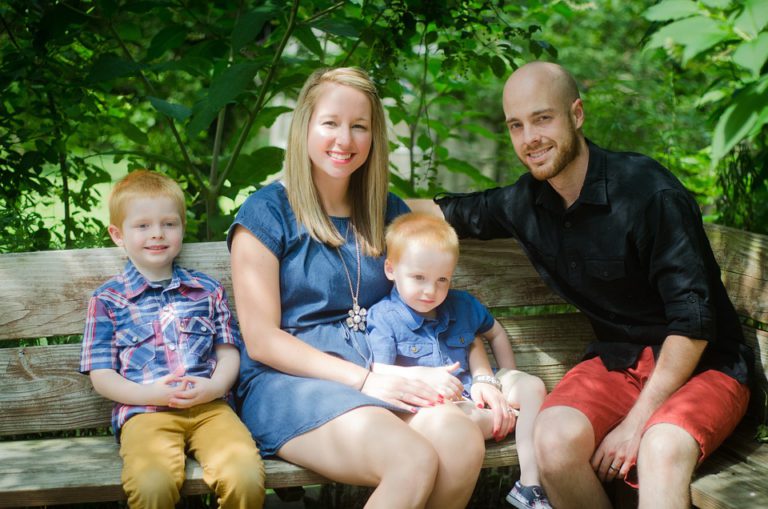Contents
- 1 Coping with Adultery: Navigating the Complexities of Stepparenting
- 2 Coping with Adultery in the Context of Stepparenting
- 2.1 How can a stepparent cope with the aftermath of adultery within their new blended family?
- 2.2 What strategies can a stepparent employ to rebuild trust and repair the relationship with their partner after infidelity?
- 2.3 What are some effective ways for a stepparent to navigate the emotional turmoil caused by adultery and find healing within their blended family?
- 2.4 Related Posts

Dealing with adultery can be an immense challenge for stepparents, as it adds a complex layer of emotions and dynamics to an already delicate family dynamic. In this article, we delve into the various ways stepparents can cope with the aftermath of infidelity, offering insights on healing, communication, and rebuilding trust within the blended family. Join us as we explore practical strategies and compassionate advice for navigating this difficult journey together.
Adultery is a sensitive and challenging topic that can greatly impact the dynamics of stepparenting. When one or both parents engage in extramarital affairs, it can create emotional turmoil for everyone involved, including the children and the stepparent.
The first step in coping with adultery as a stepparent is to acknowledge and validate your own feelings. It is normal to experience a range of emotions, such as anger, sadness, and betrayal. Stepparenting is already demanding, and the added complexity of adultery can intensify these challenges.
Communication and honesty are essential in navigating the complexities of stepparenting in the context of adultery. Openly discussing the situation with your partner and addressing any concerns or grievances can help foster understanding and establish trust. Stepparents should also prioritize maintaining healthy relationships with the children, providing a safe space for them to express their own feelings about the situation.
Setting boundaries is crucial when dealing with adultery as a stepparent. It is important to establish clear expectations and rules to ensure that everyone’s emotional well-being is respected. Additionally, seeking professional help, such as family therapy or counseling, can provide guidance and support during this challenging time.
Stepparents should also find healthy ways to cope with their own emotions and stress. Engaging in self-care activities, such as exercise, meditation, or pursuing personal interests, can help maintain balance and resilience. Seeking support from friends, trusted family members, or online communities for stepparents can also provide a valuable outlet for sharing experiences and advice.
In conclusion, coping with adultery in the context of stepparenting requires acknowledging and addressing the emotional impact it has on all family members involved. Effective communication, setting boundaries, and seeking support are key strategies for navigating this complex situation. Remember that each family is unique, and finding what works best for your specific circumstances is crucial in fostering healing and growth.
Coping with Adultery in the Context of Stepparenting
1. Understanding the Impact of Adultery on Stepparenting
Adultery can have a profound impact on the dynamics within a stepparenting relationship. It can lead to feelings of betrayal, hurt, and mistrust, making it challenging for the stepparent to navigate their role effectively. Understanding how adultery affects both the biological parent and the stepparent is crucial in finding ways to cope and rebuild trust within the family.
2. Communicating Openly and Honestly
Open and honest communication is key in coping with adultery as a stepparent. It is essential to have difficult conversations with your partner about the situation, expressing your feelings and concerns openly. Additionally, engaging in regular communication with the children involved can help create a safe space for them to express their emotions and seek support. By fostering open dialogue, the family can work towards healing and rebuilding their relationships.
3. Seeking Professional Support
Coping with adultery in the context of stepparenting can be complex and emotionally challenging. Seeking professional support, such as therapy or counseling, can provide a safe environment to process emotions, address underlying issues, and develop effective coping strategies. A therapist experienced in blended families can offer guidance and tools to navigate the complexities that arise from adultery, helping the stepparent and the family move towards healing and building a stronger bond.
Remember, coping with adultery in the context of stepparenting takes time, patience, and understanding. It is crucial to prioritize self-care, maintain healthy boundaries, and seek support when needed to ensure the well-being of yourself and your family.
How can a stepparent cope with the aftermath of adultery within their new blended family?
Dealing with the aftermath of adultery within a new blended family can be extremely challenging for a stepparent. Here are some strategies to cope:
1. Take care of yourself: Prioritize self-care and seek support from friends, family, or a therapist. This will help you process your emotions and maintain your mental well-being during this difficult time.
2. Communicate openly: It’s important to have honest conversations with your spouse about the situation. Express your feelings, concerns, and boundaries. Encourage open communication within the entire family to address any lingering issues, but remember to do so in a respectful and non-confrontational manner.
3. Set boundaries: Establish clear boundaries with both your spouse and the children involved. Boundaries will help maintain a sense of stability and respect within the family. Discuss expectations around privacy, loyalty, and appropriate behavior to rebuild trust.
4. Seek professional help: If the impact of the adultery is too overwhelming, consider seeking the guidance of a family therapist who specializes in blended families. They can provide valuable insights, help navigate complex emotions, and facilitate healthy communication between all family members.
5. Promote healing: Encourage individual therapy for anyone in the family who may need it, including the child(ren) affected by the affair. Healing takes time, and professional guidance can help everyone process their emotions and rebuild trust.
6. Foster a positive atmosphere: As a stepparent, it’s crucial to create a supportive and nurturing environment for all family members. Encourage open dialogue, empathy, forgiveness, and understand that healing and rebuilding trust may take time.
7. Focus on the future: While past events can be painful, it’s essential to focus on moving forward as a family. Work together to establish new goals, traditions, and a shared vision for the future. Concentrate on building positive memories and experiences.
Remember, dealing with the aftermath of adultery may require time, patience, and understanding. With open communication, professional help, and a commitment to healing, it is possible to rebuild trust and create a strong, loving blended family.
What strategies can a stepparent employ to rebuild trust and repair the relationship with their partner after infidelity?
Rebuilding trust and repairing a relationship after infidelity in the context of being a stepparent can be a difficult and challenging process. Here are some strategies that a stepparent can employ:
1. Take responsibility: It is crucial for the stepparent who committed the infidelity to take full responsibility for their actions. This means acknowledging their mistakes, showing genuine remorse, and being willing to make amends.
2. Be patient: Rebuilding trust takes time, so it’s important to be patient and understanding. Recognize that the betrayed partner may need time to heal and process the pain caused by the infidelity.
3. Open communication: Establishing open and honest communication is vital for rebuilding trust. Encourage your partner to express their feelings, concerns, and fears. Be a good listener and avoid becoming defensive when discussing the infidelity.
4. Show consistency: Consistency in behavior and actions is crucial in regaining trust. Stepparents should show that they are committed to change and are actively working on rebuilding the relationship. Consistency in both words and deeds is essential.
5. Seek professional help: Consider seeking the guidance of a couples therapist or counselor experienced in dealing with infidelity. A professional can provide objective guidance, facilitate communication, and help both partners navigate through the healing process.
6. Respect boundaries: Understand and respect your partner’s boundaries during the healing process. Give them the space they need to heal and rebuild trust at their own pace. Avoid pressuring them or trying to rush the process.
7. Rebuild intimacy: Rebuilding intimacy, both emotional and physical, is an important aspect of repairing the relationship. However, it should only be pursued when both partners are ready and comfortable. It’s important to prioritize emotional connection and trust-building over rushing into physical intimacy.
Remember, rebuilding trust after infidelity is a process that requires commitment, patience, and open communication from both partners. It may take time, but with dedication, it is possible to repair the relationship and rebuild trust as a stepparent.
Dealing with the emotional turmoil caused by adultery as a stepparent in a blended family can be incredibly challenging, but there are effective ways to navigate this difficult situation and find healing:
1. Seek professional help: Consider engaging the support of a therapist or counselor who specializes in working with blended families. They can provide guidance, tools, and strategies to help you and your family members process the feelings and emotions associated with the adultery.
2. Open communication: It is crucial to establish open and honest communication channels within your blended family. Encourage everyone to express their thoughts and emotions in a safe and non-judgmental environment. This will promote understanding and help rebuild trust.
3. Set boundaries: Work with your partner and stepchildren to establish healthy boundaries around the issue of adultery. Discuss what is acceptable behavior and make sure everyone understands the consequences of crossing those boundaries.
4. Focus on self-care: Take the time to look after yourself amidst the emotional turmoil. Engage in activities that help you relax and recharge. This could include practicing mindfulness, exercising, or pursuing hobbies you enjoy. Prioritizing self-care will enable you to cope better with the challenges you are facing.
5. Build a support network: Connect with other stepparents who may have gone through similar experiences. They can provide valuable insight, advice, and support. Consider joining online forums, social media groups, or seeking local support groups for blended families.
6. Be patient and realistic: Healing takes time, and it is essential to be patient with yourself and others involved. Recognize that rebuilding trust and repairing relationships will not happen overnight. Set realistic expectations and celebrate small wins along the journey.
7. Forgiveness and letting go: While forgiveness may be a challenging process, it is an important step towards finding healing. Forgiving does not mean condoning the actions, but rather releasing yourself from the emotional burden and allowing space for personal growth.
Remember, every blended family situation is unique, and there is no one-size-fits-all approach. However, with time, effort, and support, it is possible to navigate the emotional turmoil caused by adultery and find healing within your blended family.
In conclusion, coping with adultery in the context of stepparenting can be an incredibly challenging and emotionally taxing experience. Finding the strength within oneself to navigate this difficult situation is crucial for not only the well-being of the stepparent, but also for the overall harmony and stability of the blended family. It is important to acknowledge and validate the complex emotions that arise, while also seeking support from friends, family, or professional therapists. Open and honest communication with both the adulterous partner and the children involved is essential for healing and rebuilding trust. Ultimately, self-compassion and self-care play a vital role in the process of moving forward and finding peace amidst the turmoil. Remember, although it may be difficult, it is possible to overcome the challenges of adultery and create a positive and loving environment for everyone involved.







